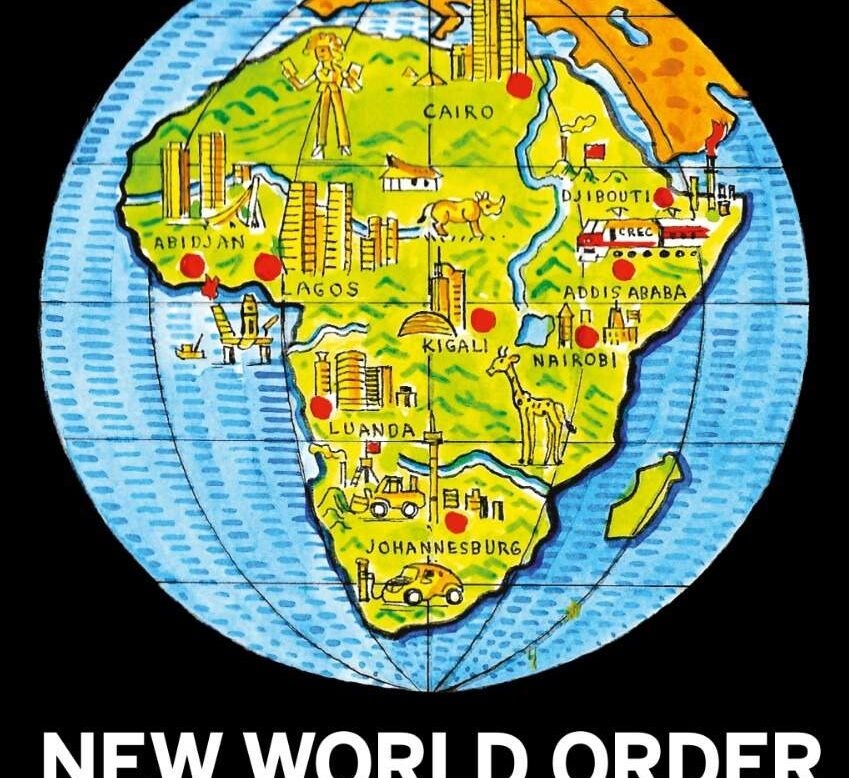
Not before time, Africa is on the verge of a rapid economic expansion – but who will benefit from it? Robert Amsterdam has an idea
Since liberation swept across Africa in the Sixties, there have long been high hopes for a breakthrough economic moment – a clear set of events and circumstances that could unlock the continent’s vast potential, transforming the region into a global investment hotspot.
So far, that moment hasn’t yet come to fruition. Instead, we’ve seen many opportunities for growth squandered – sometimes by poor governance, often by conflicts and crises, and in other cases just bad timing. But many observers, myself included, feel the coming decade has the potential to be very big for Africa, and if everything finally falls into place you won’t want to be left behind.
What is different now from the past? For one thing, we are finally seeing a sweeping generational change of leadership, as many of the sclerotic despots left over from the post-independence and Cold War eras are finally being chased from power. Robert Mugabe is gone, there are new governments from Algeria to Gambia to Sudan, while the old stalwarts like Uganda’s Yoweri Museveni are increasingly regarded by their own citizens as illegitimate and unwelcome.
Perhaps a high point for the continent was the 2019 Nobel Prize being awarded to Ethiopian prime minister Dr Abiy Ahmed, whose pursuit of peace with Eritrea, successful political reforms and pro-growth agenda have shown many neighbours Africa’s tremendous potential with his own version of African ‘glasnost’.
In addition to fresh, youthful leadership, the continent also has its demographics trending in the right direction, with a massive population of youth about to become productive workers and avid consumers in relatively untapped markets.
Home to four of the fastest-growing economies in 2018, soon 43 per cent of Africans will join the middle and upper classes, while consumer spending is expected to reach $6.7 trillion by 2030. And yet, despite all the strong fundamentals, a paltry 0.47 per cent of global investments are destined for the region, leaving many opportunities.
Certainly, there are risks that need to be addressed, from property rights to rule of law to basic insecurity and inequality. One of the main problems has been Africa’s tremendous fragmentation. But there are finally some signs of hope for integration to take off. In March 2018, 55 member countries of the African Union signed the African Continental Free Trade Area (AfCFTA) agreement, which will eliminate tariffs on most goods, liberalise trade of services, establish mechanisms to sort out intraregional trade disputes, and eventually create a continental single market with free movement of labour and capital.
This integration is badly needed. In Europe, trade among EU members accounts for almost 7 0 per cent of exports, whereas in Africa it is around 17 per cent. If AfCFTA is successful, estimates from the UN indicate intraregional trade could reach $70 billion by 2030 – an astonishing figure.
There are already clear signs that greater integration is taking off. According to a study by the Boston Consulting Group, between 2006–07 and 2015–16 the amount of money African firms invested in Africa itself increased from $3.7 billion to $10 billion, while intraregional M&A deals jumped from 238 to 418.
China’s presence in Africa has been the subject of great attention. Beijing increased its exports to African consumers seven-fold from 2005 to 2015. But there is less discussion of Russia’s recent efforts to court African leaders and establish military supply contracts, oil deals and political cooperation agreements.
Though there are risks that Russia could become increasingly interested in election interference in Africa, generally speaking, it is Africa itself that is going to benefit from increased competition from China, Russia, India and any other global players.
These are still very early days for the Africa Opportunity. Before consumer markets can take off, they need to accomplish integration, and before integration is realistic each country needs to develop policies to offset the adjustment costs and ensure that all citizens can benefit.
Yes, the risks are there – but there is also nowhere else left in the world with so much room to grow. It would be a shame to miss it.
Read more from the Spear’s Africa edition
Why diamond mining in Africa is a double-edged sword
Why the future of the global economy is African
‘Over the next 50 years this is where you should be putting your money’






